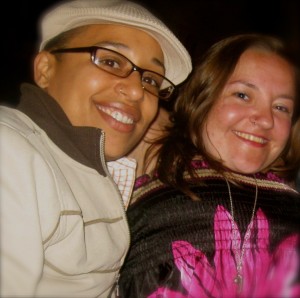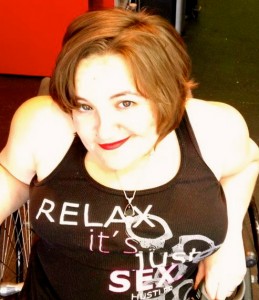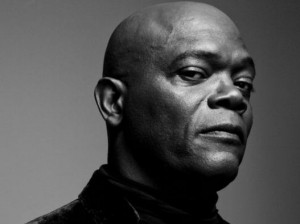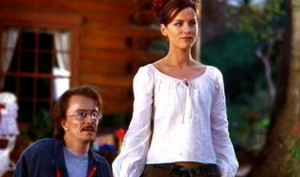
Thank you for welcoming me to this Blog Hop, Ignacio Rivera! I met them in the summer of 2011 in San Diego, California at the American Association of Sexuality Educators, Counselors, and Therapists annual national conference (of which I am co-chair of for 2013-14). We had a fabulous chat about intersectionality and working together in the future. This blog hop is one way we can work together – and more should come!

Blog Hop is a blogging chain letter of sorts, in which a person features you in their blog and you feature several in yours in order to incite writing and spread the good word about our communities. PLEASE do check out the other folks mentioned at the end of this post, jump on the bandwagon, and enjoy the ride!
Here’s to ringing in a pleasure and success filled 2013! Happy 2013!

What is the working title of your next book?
The books I have in mind remain untitled at this point, though I have been playing with phrases. I plan to write 3 books on the following topics: 1) transability ( folks who need to be physically disabled whilst living in an able-bodied state), 2) sexuality and disability (specifically how ableism impacts sexual health/sexuality), and 3) an anthology on narratives by disabled contributors who have experienced sexual violence.
Planning to write all of this is daunting for a person who really needs to be inspired by deadlines. Instead of actually being a dutiful author asked to publish, I have been slowly poking through the process. Some of this is impostor syndrome and much of it is simple laziness – I’d rather talk than write. My gifts really are oral.
The only book that has a prospectus and a few chapters is the transability book. I am stuck on the belief of not *really knowing* the topic yet. This feeling that I should *know* is precisely what made me not publish my thesis on the topic for 3 years (please check out my piece here: Interrogating Transability: A Catalyst to View Disability as Body Art, 2011). I continue to be a bit scared that I cannot do the people or the topic justice. Though at this point, I am tired of waiting to know because I never will. I need to move forward. 2012 was not about writing but 2013 will be. Here’s hopping blogging is a good jump start for writing again, along with a lightened teaching load.
Where did the idea come from for the book?
Transability came from a sleepless night of researching transness, during my time in the bay area studying sexuality. I will admit, because so damn few do, that I did not know gender and ability were not binaries, until living there and frolicking with fabulous people. I really thought ability and disability were static polar opposites, similarly that there are just dudes and chics – such a silly little crip.
Reading narratives about transitioning or needing on transability.org provoked intense feelings of frustration and confusion. I wanted to work through why I was viscerally rather hostile with people needing to be disabled. This continues to disturb my body politics, as I tend to perceive myself as one who has accepted disability. I rather dig the cognitive dissonance it provokes in me and others.
The sexuality and disability book just needs to be written at some point because it’s my life focus. It will not be my first book because there are a few big cripsex books out now and I would rather not compete at this time (only child syndrome). Also, I think I need to age more before I write this one and the next.
Finally, the sexual violence anthology with other disabled folks just needs to be written. It causes me great pain that my people experience such high rates of violence yet do not talk enough about it, even to each other. People do not need to come out by name in the book, as I will, but I do want to bring together first person narratives around this topic. Despite the issues in first person narratives (e.g. veracity, lack of generalizability, etc.), they reach students and other readers because they make people feel (e.g. science of story-telling). Our narratives need to be heard, read and felt because part of the problem with the tired-ass widespread stereotype of disabled people as pitiable, tragic figures is that when f*cked up shit happens to us, too many people think of it as inevitable rather than as an outrage.
What genre does your book fall under?
Transability: disability studies, transgender studies, body modification
Sexuality and Disability: disability studies, sexual health
Anthology of Sexual Violence & Disability: narratology, sexual health, disability studies.
#nerd
Which actors would you choose to play your characters in a movie rendition?
I’m not sure which oste0genesis imperfecta (OI) could play me; even though many people think I look like other OI. (Some of us do sort of look related because OI affects our skeletons in similar and most fabulous ways).

I think I’d rather dig the absurdity of having a giant play me, like a white femme version of Samuel L. Jackson of the OI character in Unbreakable, 2000 (dude is 6’2” – NOT even the tallest of OIs I know are that damn tall, especially if they are wheelchair users).
Or perhaps I should have someone pretending to be little person by wandering around their knees, like Gary Oldman, in the classic film Tiptoes, 2003 (featuring my friend Bridget the Midget).

And possibly it would be cool to be played by Bridget the Midget Powerz. We are almost exactly the same height (she has 1 inch on my 3’8” – tall among many with my disability) and *finally* I would have the 6-pack abs that I have never seen on an OI!

What is the one-sentence synopsis of your book?
Transability: Why does it bother you that people need to be disabled?
Sexuality and Disability: Crips will make you cum.
Sexual Violence and Disability: People really do hate disable people and you need to know that is inevitable for our culturally assumed tragic existence.
Will your book be self-published or represented by an agency?
Interest has been expressed regarding the transbility book. So… I need to write the damn thing and stop procrastinating. The rest will come. It seems part of my path.
How long did it take you to write the first draft of your manuscript?
Nothing is complete. It will take longer than I want (1 year per book) and so will the publication process, as it always has.
What other books would you compare this to within your genre?
Those in the Corporealities: Discourses of Disability Series at University of Michigan. Would love for the sexual violence anthology to be South End Press worthy so that it gets a broad audience to call for coalitional political organizing and thought. But I am not sure if disability is quite sexy enough just yet.
Who or what inspired you to write this book?
All of the books I want to write involve starting with me-search (i.e. getting pissed off about an issue in my life and turning to theory and personal accounts about the same issues to understand them). Knowing that these ideas need to be shared makes me feel the pressure to write so there is a sense of permanency with the ideas. I want to share the stories people have a hard time talking about. When I do share in conferences or classrooms, it affects people more than mere facts/data. In a recent conference I spoke about having several lovers throughout my life and how that has not stopped the feelings that I am not beautiful, desirable or worthy. By revealing my continued internal battle with ableism, people responded with stories of their experiences, as well as affirming how necessary it is hear these truths. Certainly, the same is true for writing. The words need to be shared to start conversations in many modes. As an aside, I do find that by the time a piece is published it does not precisely reflect what I am thinking at the moment. My inspiration to write comes from an inspiration to learn more about what I think through inciting conversations. This is a classic Libra trait.
What else about your book might pique the reader’s interest?
These books will be titillating reads because they will push already difficult subjects farther by exploring: the borderland of disability and ability, the pain associated with not feeling desirable, the specific aspects of many disability experiences of sexual violence. Affirming or politicizing disability tends to blow peoples’ minds. People may have braingasms that are out of control with such material. Hopefully it will inspire some more critical thinking around the possibilities of diversity in our bodies, minds, and sexualities.
Also, when I am on tour or sharing the books with the world through whatever mode I can – folks will find they are entranced by my giggle. To get a few tastes of such tantalizing sounds and a transcript, please check out Anthony Tusler’s interview of me for the Telling Our Disability Stories with the Accessible Technology Coalition. This giggle will drive sales and yet make me little money, but definitely stroke my throbbing ego. Many may be surprised that a disabled person could even have an ego – so hell that is pedagogical on its own.
Check out these blogs!
Aside from the blogs cited throughout this post, you should check out what I am reading these days!
Ignatio’s Poly Patao Productions includes a smart and thoughtful collection of personal musings on sex, kink, class, race, gender, and culture as well as sex toy reviews, a Q&A column and events. They is someone to catch when in town to learn from about various things that can improve one’s life holistically.
Lydia Brown’s Autistic Hoya is a kicking ass uppity, smart, autistic prideful and diversity encouraging blog. She is one of the leading voices in calling for neurodiversity. Her posts are delightful when you one needs to get pissed off, think through issues, and decipher when one engages in ableist actions.
Melanie Yergeu’s blog Aspie Rhetor consistently pushes all of her fans to think deeply about the resonance of words, structures of oppression in academe, and contends with intense material. Her outing of suicidal ideation helped me express mine, even though many argue it is not professional to do so. F*ck the closet, someone needs to scream some truth and Melanie does!
Cory Silverberg’s Sexuality blog with about.com provides sexcellent information in easy to consume morsels. He challenges readers to think about topics that might not otherwise come into contact with when just pursuing about sex on about.com – like disability, pornography, sexual agency, and effective/healthy communication. He is a great ally of mine and I adore. Also, if you have a nugget in your life – please buy his lovely book What Makes A Baby.


Your books sound really interesting! I will be quite anxious to read particularly your book on transability. I’m a devotee myself, but am fascinated by pretenders/wannabes. I write fiction books that explore the sexuality of attraction to disability myself!